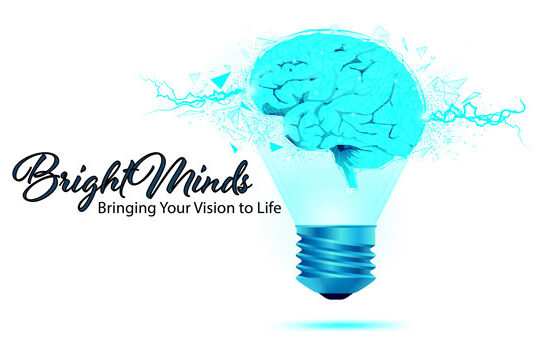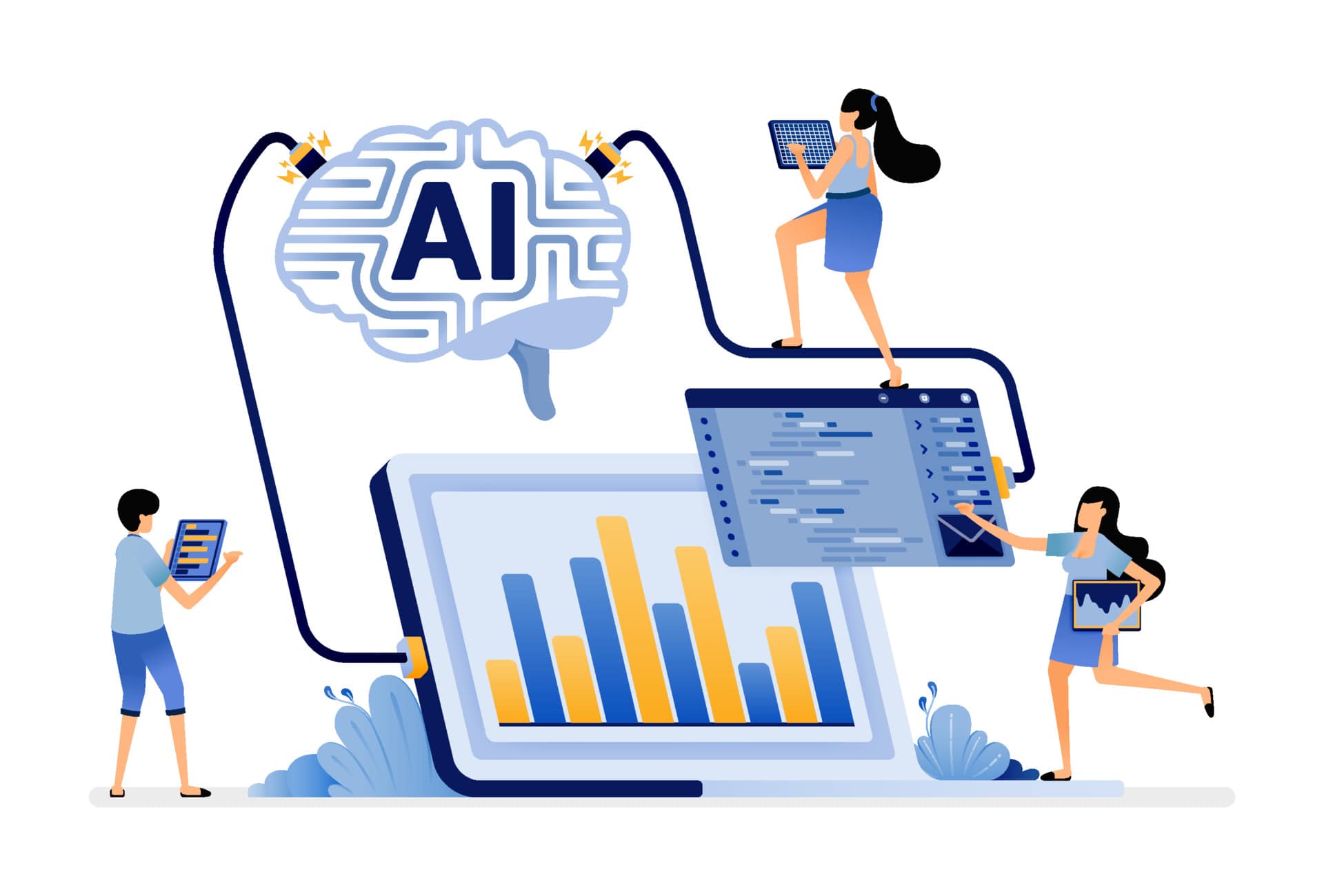Fact: Digital marketing is a rapidly evolving field.
But this is also a fact: It’s hard to stay on top of all the new technology available for digital marketing.
One such technology that keeps popping up is Artificial Intelligence or simply AI. And over 80% of industry experts say they use AI in their online marketing.
Further, the marketing market for artificial intelligence (AI) is predicted to be more than 107.5 billion USD by 2028.
But what exactly is AI in digital marketing?
We got you! In today’s blog post, let’s check out the common uses of AI in marketing. Later on, we’ll also introduce you to a new AI-powered tool that created a worldwide buzz―OpenAI’s ChatGPT.
So, let’s get started.
What do we mean by AI in digital marketing?
First, it’s important to understand what AI is. It stands for Artificial Intelligence, which refers to technology that mimics human cognitive processes. In digital marketing it is also refers to using artificial intelligence techniques such as machine learning, natural language processing, and computer vision to improve marketing activities.
AI technologies use algorithms to analyze consumer data, provide actionable insights, and automate previously time-consuming and often manual tasks. In a nutshell, AI has transformed digital marketing practices in several ways.
Look at the list of benefits that follow.
Benefits of AI in Digital Marketing
There are several ways businesses can leverage AI to improve their marketing strategies. And before we proceed to see its common uses in digital marketing, let’s see its benefits first.
Increased efficiency
A significant advantage of AI in digital marketing is increased efficiency and productivity. With AI automation, marketing teams can minimize the manual workload and allocate more time to tackle other marketing efforts. Such automated tasks include lead scoring and user segmentation.
Better data analytics
One of the prominent reasons why AI is making waves in digital marketing is because it can analyze vast amounts of data in real time ( much faster than human analysts). AI algorithms can help businesses track key performance metrics, identify trends, and generate insights that will empower them to make data-driven decisions. Marketing teams can use this information to optimize campaigns, improve customer experiences, and increase effectiveness.
Improved decision-making
AI algorithms can analyze past data to predict future trends and customer behavior, allowing marketers to make data-driven decisions. For example, AI can analyze website traffic data to identify patterns and insights that can inform website design, content creation, and product development. This leads to more informed and effective decision-making, reducing the risk of costly mistakes.
Improved customer targeting
Since AI technology can easily analyze customer data, you can use it to identify potential leads with a higher chance of becoming customers—thus significantly improving your lead generation efforts.
Cost-effective marketing
Implementing AI in your digital marketing efforts can lead to cost savings for businesses in the long run. AI-powered automation tools can reduce the amount of manual labor required, resulting in fewer employees and fewer overhead costs.
Personalized customer experience
The ultimate goal of digital marketing is to provide a personalized customer experience. With AI, you can create customized content and ads tailored to your target audience. AI algorithms use machine learning to analyze customer data, such as browsing history and buying behavior, to generate more effective personalized content.
Advantage to analyzing competitors
Lastly, AI can help businesses analyze their competitors’ strategies and evaluate the market trends in real time—no, this is not cheating. Machine Learning algorithms can monitor and compare competitors’ ad campaigns or the latest SEO keywords, highlighting the areas where the superior target segments can be addressed. Insights generated from AI-led competition analysis can be revolutionary for creating impactful digital marketing strategies.
Common Uses of AI in digital marketing
As we mentioned earlier, artificial intelligence is used in many ways in digital marketing. Here are some of the most common applications:
Chatbots
Chatbots are AI-powered tools that can conversationally communicate with customers. They can answer questions, provide recommendations, and help customers complete transactions. Chatbots are available 24/7, providing customers with instant assistance and freeing up customer service representatives to handle more complex issues.
Predictive analytics
AI algorithms can analyze big data sets to detect patterns and forecast customer behavior. It helps businesses understand customer needs, preferences, and buying habits to tailor marketing campaigns and deliver more effective results. Predictive analytics (like Google Analytics) can decrease marketing budget waste by helping identify campaigns most likely to generate ROI.
Voice assistants
Hey Siri! Hey Alexa! Hey Bixby!
Voice assistants are becoming increasingly popular, and businesses are leveraging them to reach customers through voice searches. By optimizing their content for voice search, businesses can reach a larger audience. Voice assistants can also deliver personalized recommendations and offers based on customer preferences.
Recommendation engines
Wondering how some apps continually pop out items close to your last search? That’s AI recommendations! Recommendation engines are AI-powered tools that analyze customer behavior to deliver personalized product recommendations. They can suggest products based on past purchases, browsing history, and other data points. And leads to a better customer experience and higher conversion rates.
Image and video recognition
AI-powered tools can analyze images and videos to identify objects, people, and other elements. So, don’t be alarmed if you have automatically tagged a Facebook friend or YouTube suggested your next similar video to watch. They just have AI recognition. This can be used to improve ad targeting. A good example is when a shopping retailer uses image recognition to identify the styles and colors of the clothing a customer is interested in and delivers personalized recommendations based on that information.
Content creation
AI-powered tools can create content customers will find engaging. For example, they can generate product descriptions, blog posts, and social media updates based on customer behavior and preferences. This leads to more engaging content and higher customer engagement. And the most talked about AI tool for this is OpenAI’s ChatGPT.
Get to know OpenAI’s ChatGPT
ChatGPT is an AI-powered tool created by OpenAI. It’s based on the GPT-3.5 architecture, so it’s one of the most advanced AI models. The tool is trained on a massive amount of data, making it capable of understanding and responding to various questions.
Here’s a closer look at how ChatGPT can be used in digital marketing (according to ChatGPT itself):
- Improved customer service
ChatGPT can be used to provide instant and personalized assistance to customers, answering their questions and providing recommendations. This can improve customer satisfaction and reduce the workload on customer service representatives.
- Personalized recommendations
ChatGPT can analyze customer data to provide personalized product recommendations and offers. This leads to a better customer experience and increased conversion rates.
- Content creation
ChatGPT can generate content for blogs, social media, and other marketing channels. It can create content that resonates with customers and drives engagement by analyzing customer behavior and preferences.
- Lead generation
ChatGPT can be used to qualify leads and gather customer data. By engaging with potential customers through chat, businesses can collect valuable information on customer needs and preferences, allowing them to tailor their marketing efforts and improve their lead generation efforts.
- Data analysis
ChatGPT can analyze large sets of customer data to identify patterns and insights. This can inform marketing strategy and help businesses make data-driven decisions.
- Improved customer experience
By providing personalized assistance and recommendations, ChatGPT can improve the overall customer experience. This leads to increased customer satisfaction, loyalty, and retention.
Too good to be true? Well, it probably is—and here’s why.
While ChatGPT (and AI technology in general) offers many benefits, there are also limitations. I’ll list a few:
- They have a poor level of emotional intelligence.
ChatGPT might have trouble interpreting customer emotional cues, resulting in less human-like conversations.
2. They can misunderstand the context.
ChatGPT may be unable to understand the context of a customer’s question or request, resulting in inappropriate or incorrect responses.
3. They have an inherent risk of bias.
It’s all about the data you feed AI algorithms. AI is only as unbiased as the data they are trained on. So if the data it’s been introduced on
reflects the biases and prejudices of the authors and sources that produced them, the AI-generated responses just might include those biases as
well.
4. They have limited domain-specific knowledge.
ChatGPT may not always provide accurate or complete information on certain specialized subjects.
AI assistance in your digital marketing service
Yes, AI in digital marketing is transforming the marketing process—if you think about it, the possibilities may be endless. But some of the digital marketing tasks where AI is useful include:
- Chatbots
- Predictive Analytics
- Voice Assistants
- Recommendation Engines
- Image and Video Recognition
- Content Creation
And while there are also potential drawbacks to using AI in marketing, it’s still a technology that you can’t you can ignore.
Got no time to do digital marketing yourself, even with AI around? Let BrightMinds help.
No, we’re not AI but real human digital marketers, and we know how to use these tools to your advantage. Book a call with us, and let’s talk about how we can collaborate.




